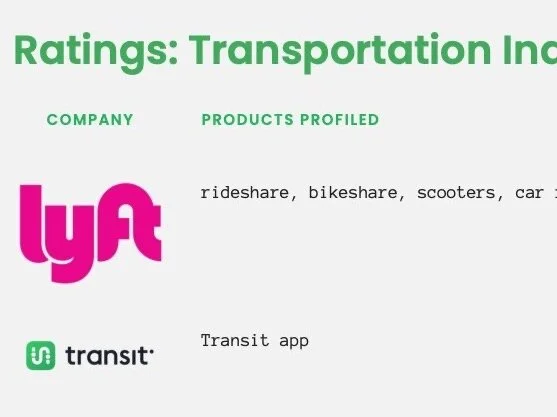We talk a lot at Building H about the ways that modern life affects our health-related behaviors. One of the biggest casualties of the modern lifestyle is cooking dinner at home, which has been on a long slow decline. (See Amanda Mull’s excellent “How America Lost Dinner” for a rundown of the many factors involved.)
Read MoreWe’re excited to share the results of a speculative design project we supported with students from the University of Washington’s Human-Centered Design and Engineering department. Aichen Sun, Eeshani Mondal, Elen Liu and Samrudha Malandkar have created deliz, a speculative design for a service that makes it easy and fun for people to cook at home.
Read MoreGetting outdoors is good for people – it can lower stress levels, lower blood pressure and heart rate, increase immune function, help align circadian rhythms (and thus lead to better sleep), build stronger bones and even reduce myopia in children. It’s an important – if often overlooked – health behavior.
Read MoreSo much of our economy is based on the challenge of figuring out what consumers want and then delivering the products and services that meet those demands. But how do we know what people want?
Read MoreA couple weeks ago, Steve and Thomas invited folks in the San Francisco area to join us in an office across from South Park for a face-to-face, in-person, real-life, here-and-now, bonafide meetup. Like one of those pre-2020 things where people interested in one something “meet up” to talk and share ideas.
It was awesome.
We’ve long argued that to improve the public’s health, we need a product environment (i.e. the products and services that shape our everyday behaviors) that is healthy by design. And that achieving this outcome will take leadership: collective intention and collective will, in both the private and public sectors. Two stories in this edition speak to the challenges and possibilities of engaging that leadership and marshaling the resources to achieve positive social impact.
Read MoreWhile public health has often looked to public policy as primary tool for tackling major health challenges, we’ve generally taken a different tack with Building H. Our focus is on the product environment – how the product and services of everyday life shape the behaviors that affect people’s health. We seek to catalyze innovation in products and services that make it easier to lead healthier lives and create transparency and accountability for the impacts that businesses have on their customers. But while we don’t focus on policy, there is often an important interplay among technological innovation, policy and infrastructure and nowhere is this more evident than in the field of mobility…
Read MoreWe all know that cooking dinner is tough, especially for people with busy lives. It’s no wonder that we turn to DoorDash or pick up a prepared, ready-to-eat meal. But what if we could make it easier to cook? And faster, and more fun?
Read MoreLast week Eli Lilly reported some impressive trial results for tirzepatide, its new weight-loss drug. Patients reportedly lost an average of 22.5% of body weight, or more than 50 pounds on average. Between tirzepatide and Novo Nordisk’s semaglutide (aka Wegovy), which had similar (if not quite as powerful) results, it appears that there will be good pharmacological options for the treatment of obesity.
Read Morewe’re excited to launch the 2022 Building H Index - a ranking of 37 of America’s best known companies on how their products and services affect human health, everyday. It’s a new way to think about How Health Happens.
What does that mean? How did we do it?
Read MoreWe’re delighted to announce that Building H has become a project of the Public Health Institute. The Public Health Institute (PHI) has an auspicious 50+-year history of supporting public health leaders and innovators through acting as a fiscal sponsor and incubator of nonprofit efforts to improve public health.
Read MoreWe worked with Hopelab and some of their partners to ask young people about how they define health, how to build it into everyday life and the role of technology in shaping their health. All of the content, which focuses heavily on video interviews, from this exploration is now available on the Building H website.
Read MoreWe created the Building H Index to put a spotlight on the ways that companies in the entertainment, food, housing and transportation industries affect day-to-day behavior and to spark conversations about how they can achieve more positive impacts. For the next iteration of the Index, we’re seeking people with health backgrounds to help us rate the impacts that different companies have. It’s a quick volunteer opportunity and a valuable contribution to our mission. Details, including the signup form, are here.
Read MoreBuilding H sponsored a team at the University of Washington to create a speculative design of a mobility-as-a-service app that would unite different transportation modes and — crucially — enable users to specify and ultimately align their values to their choices. The design, the lessons learned, and the background on the project are all now available on our website.
Read MoreWe’re out with two new reports from our survey on modern life and health behavior. The first, on entertainment, focuses on the roles that video streaming, mobile gaming and screen time in general play in our everyday health behaviors — how they affect our sleep and social connection, in particular. The second focuses on sleep — how much we’re getting (for most of us, not enough), the racial and gender disparities in sleep, and what gets in the way.
Read MoreBuilding H was given an honorable mention as one of Fast Company’s World Changing Ideas for 2021. We were recognized for our core premise -- that we have to build health back into everyday life -- and the work we’ve developed on an approach to assessing the impact of popular products and services on health-related behaviors.
Read MoreThe initial results are out from a set of original surveys we conducted on health-related behaviors and the influence of popular products and services. The surveys covered topics like eating habits, routine physical activity, sleep patterns, social activity, time spent outdoors, transportation habits and use of services like video streaming, food delivery apps, ride hailing, bike share and mobile gaming. We’ve just posted our first article from the project.
Read MoreCo-living, “living at work,” 15-minute cities, and tensions between smart home technology and privacy — these are some of the trends we explore in a new “bonus edition” of our regular newsletter that focuses on the intersection of architecture, community development and health.
Read MoreBuilding H co-founder Steve Downs co-authored a commentary, along with physician and behavioral scientist Kevin Volpp, that just came out in NEJM Catalyst. Downs and Volpp argue that the persistent long-term growth of chronic diseases in the U.S. cannot be reversed by relying on individual behavior change strategies.
Read MoreWe just came out with a “bonus edition” of our regular newsletter that drilled down on one topic area — social connection. The report covers key opportunities, new research findings, developments and trends, companies to watch and recommended reading.
Read More



















